Public Lecture by the Japanese Ambassador H. E. Shinichi Yamanaka on The Japanese Education and Science in The Time of Great Transformations
H. E. Shinichi Yamanaka, Ambassador Extraordinary and Plenipotentiary of Japan to Bulgaria visited the university and delivered lecture on the Japanese Education in the Time of Great Transformations. The event was held in the Ceremonial Hall of the university and it was attended by the Rector of UNWE Prof. D.Sc.(Econ.) Statty Stattev) and the Vice Rector Assoc. Prof. Dr. Milanka Slavova.
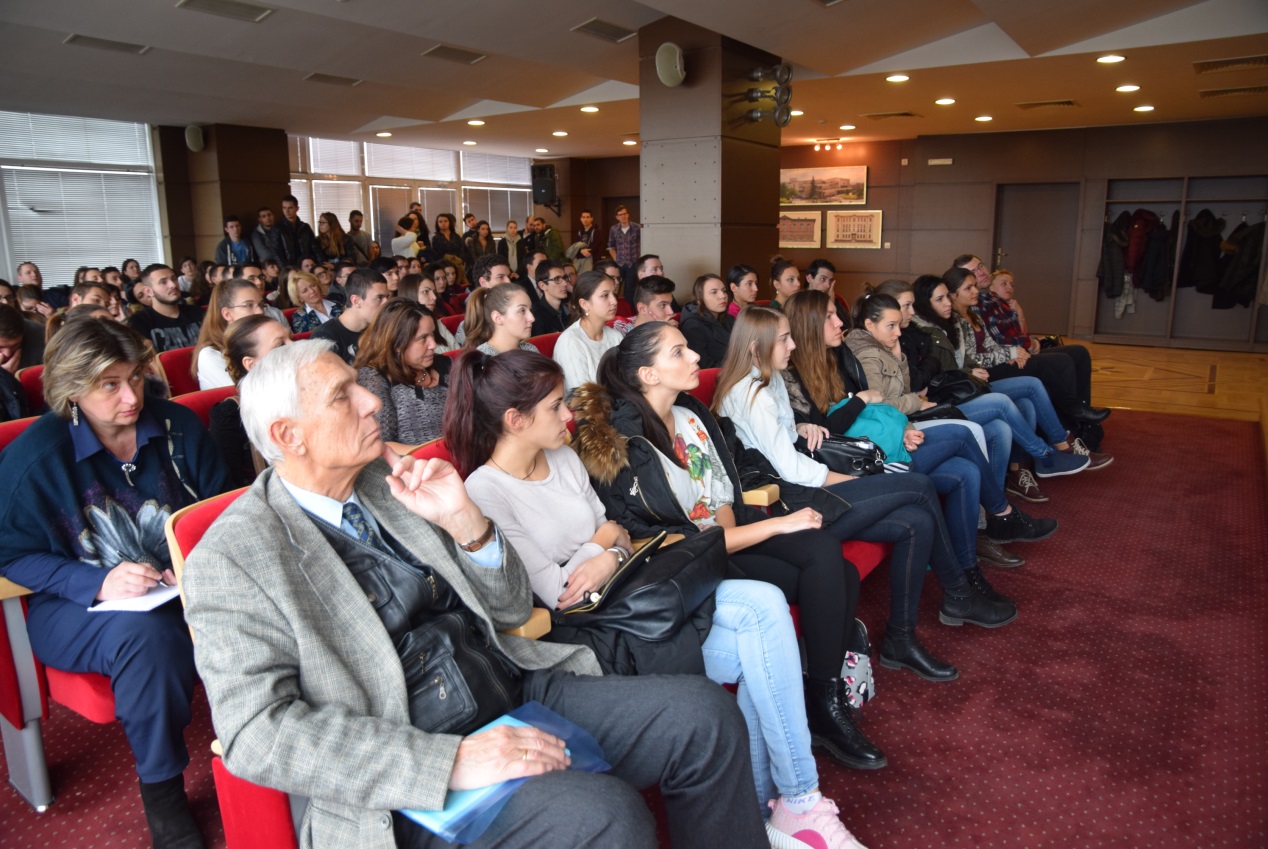 |
| In the Ceremonial Hall |
Prof. Stattev presented briefly the rich biography of H. E. Shinichi Yamanaka. He has been appointed as Ambassador Extraordinary and Plenipotentiary of Japan to Bulgaria in July 2016. The Ambassador has graduated from the University of Tokyo and has worked at the Ministry of Education, Culture, Sports, Science and Technology. He has occupied various high positions in the field of education: Director of the Committee for Education Recovery to the Prime Minister, Director General of the Bureau for Youth and Sports, Director General of the Minister`s Secretariate, Director General of the Bureau for Primary and High Education, Deputy Minister of Education, Culture, Sports, Science and Technology. He has an academic degree of Associate Professor and has been a lecturer at the Institute of Postgraduate Studies in International Economy and Law to the Yokohama State University. H. E. Shinichi Yamanaka is still Chairman of the Board of OECD Teaching and Learning International Survey.
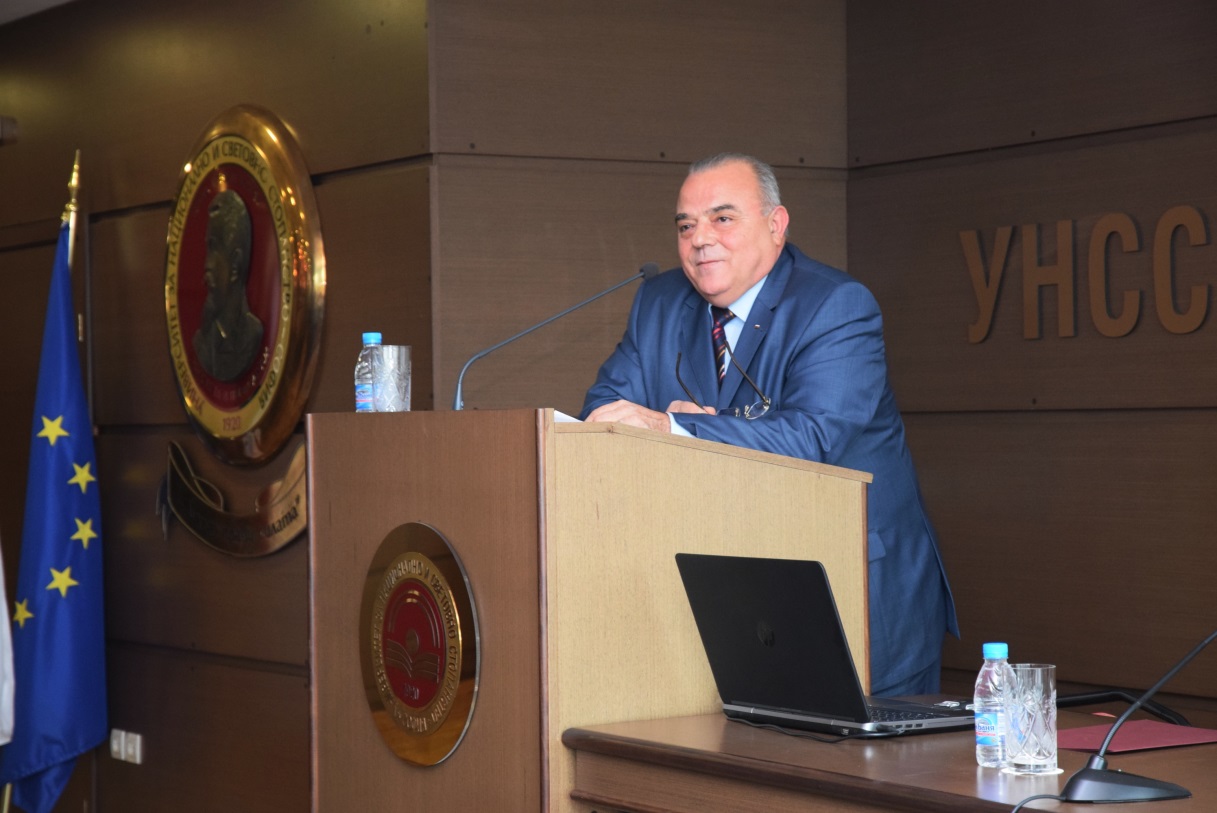 |
| The Rector is opening the public lecture |
The Rector Prof. Stattev pointed out that the topic of the public lecture by H. E. Shinichi Yamanaka had been not accidentally chosen because his biography had been a proof that over the last 20 years he had worked on the issues of higher education so he had obtained lots of experience to share and be especially helpful.
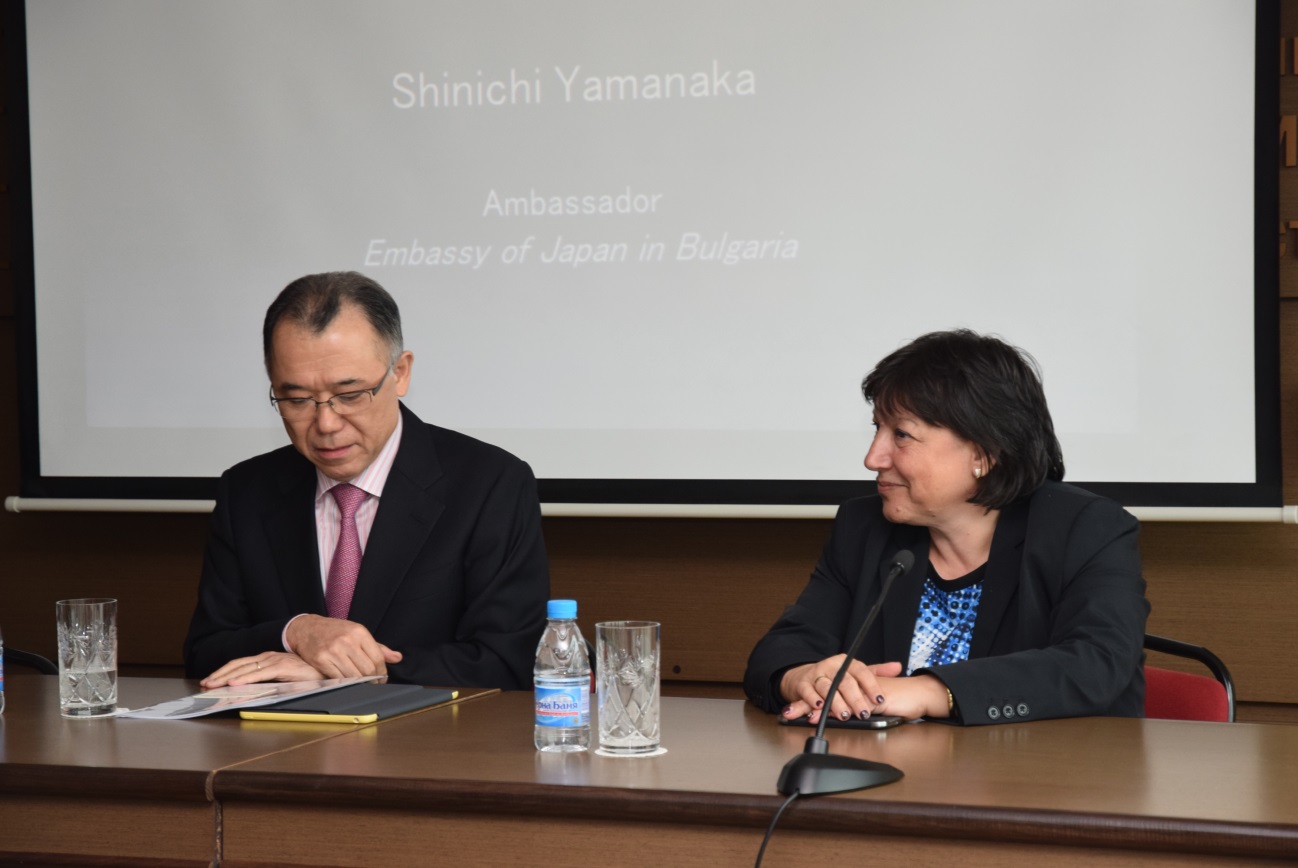 |
| H. E. Shinichi Yamanaka and Assoc. Prof. Dr. Milanka Slavova |
In his presentation H.E. Shinichi Yamanaka made a detailed SWOT analysis of the Japanese education and science and unlike the usual practice of emphasizing on strengths he reviewed the weaknesses at first. The lecturer outlined the most important problems as the decrease in the number of students studying abroad, decreased educational time, necessity of motivation to young people for studying and as threat he pointed out the changes in the demographic map of Japan. As a problem the Ambassador also outlined the lack of confidence of Japanese pupils and students and said that it had been a challenge no only to parents but to society as a whole. According to H. E. Yamanaka the problem could be overwhelmed through change in the system of teaching and examining which should promote more confidence to the young Japanese people.
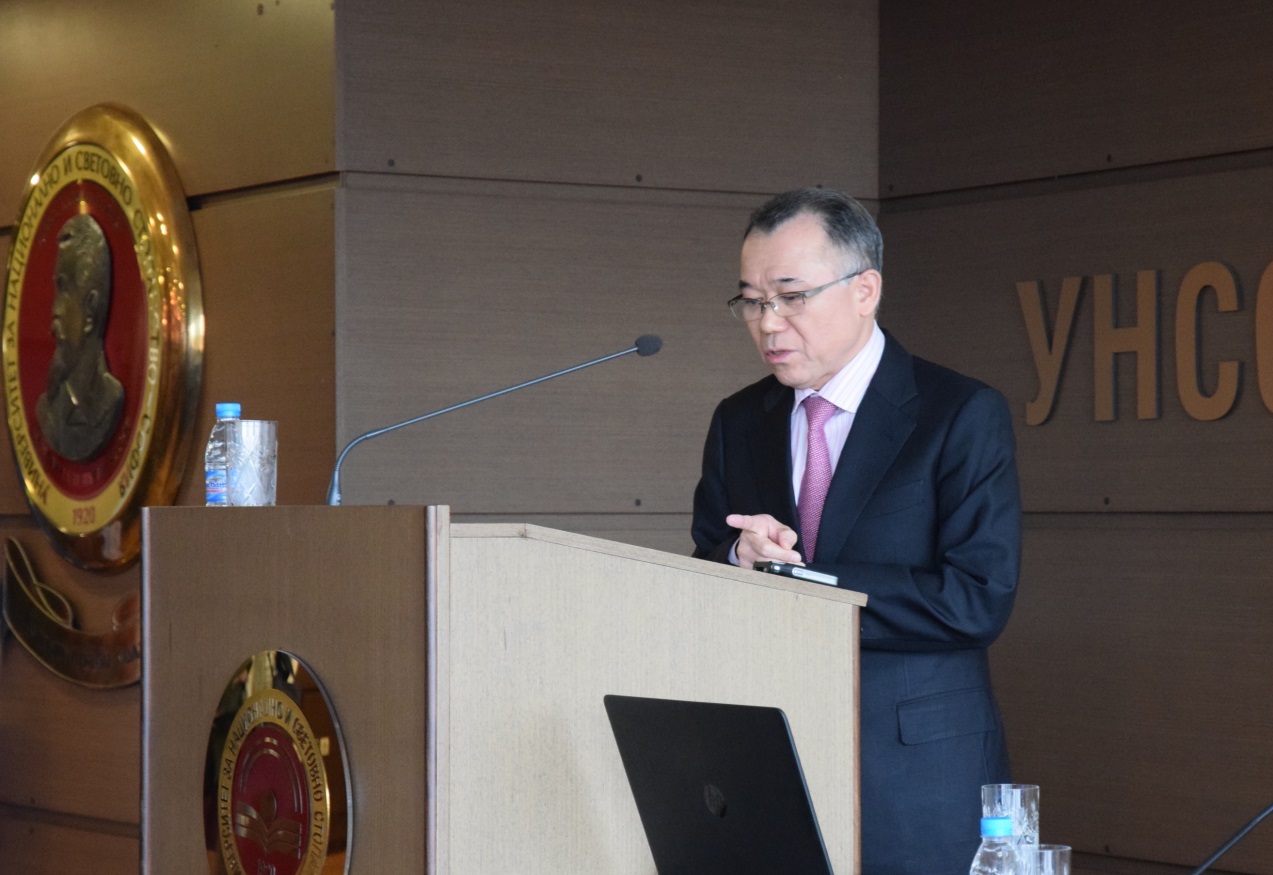 |
| The guest-lecturer |
The largest transformation of education since the creation of printer machine so far is the online education at today`s universities, pointed out the lecturer. As strengths of Japanese education the Ambassador outlined the integrated courses of studies and collaborative work in groups. He examined also the different grades of Japanese education – from the primary school, high school to university and even education at the workplace. H. E. Yamanaka exposed also his point of view about the educational reform in order of the internationalization and mostly globalization of educational standards. It includes the promotion of interdisciplinary education as well as specialized education combined with more practical knowledge. Last but not at the least place he outlined the necessity of reform for improvement of the company policy of hiring. He concluded that “the globalization of education is the largest innovation of modern times in that field”. The modern society requires globally prepared specialists who can solve the increasing number of modern challenges, explicitly said the Ambassador.
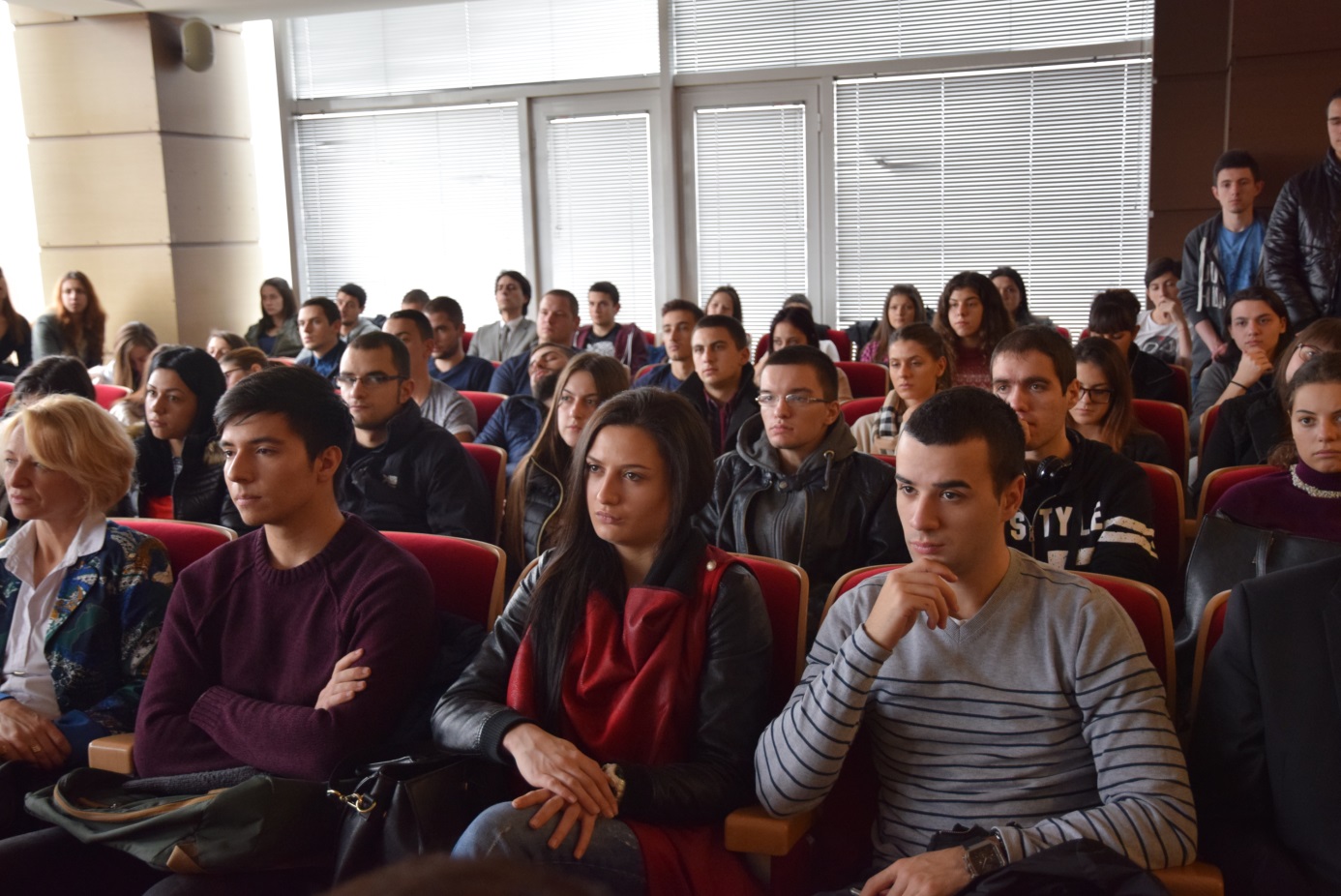 |
| During the public lecture |
As an illustration of achievements in the science H. E. Shinichi Yamanaka outlined the names of Japanese scientists who had won the Nobel Prize – Shinia Yamanaka, Nobel Prize in Physiology or Medicine in 2012, Isamu Akasaki, Hiroshi Amano and Shuji Nakamura, Nobel prize in Physics in 2014.
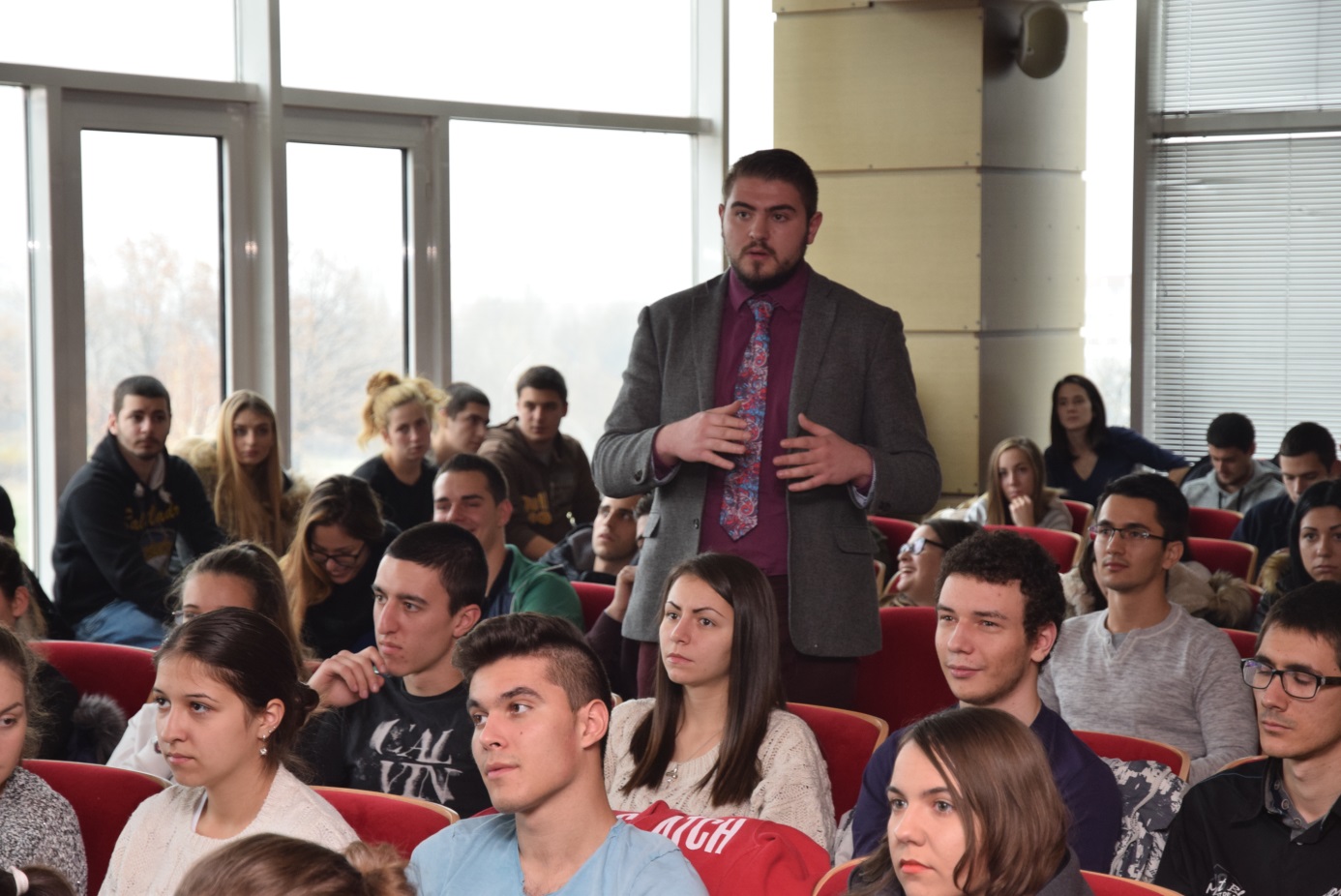 |
| Questions to the lecturer |
The lecturer answered a large number of questions by the students and in one of his answers he pointed out: “Money can change education and education can change everything”.
The Rector Prof. D.Sc.(Econ.) Statty Stattev awarded to H. E. Shinichi Yamanaka a Certificate of Appreciation in recognition of his lecture. He invited the guest to deliver his next lecture in the spring of 2017 (in the picture below).
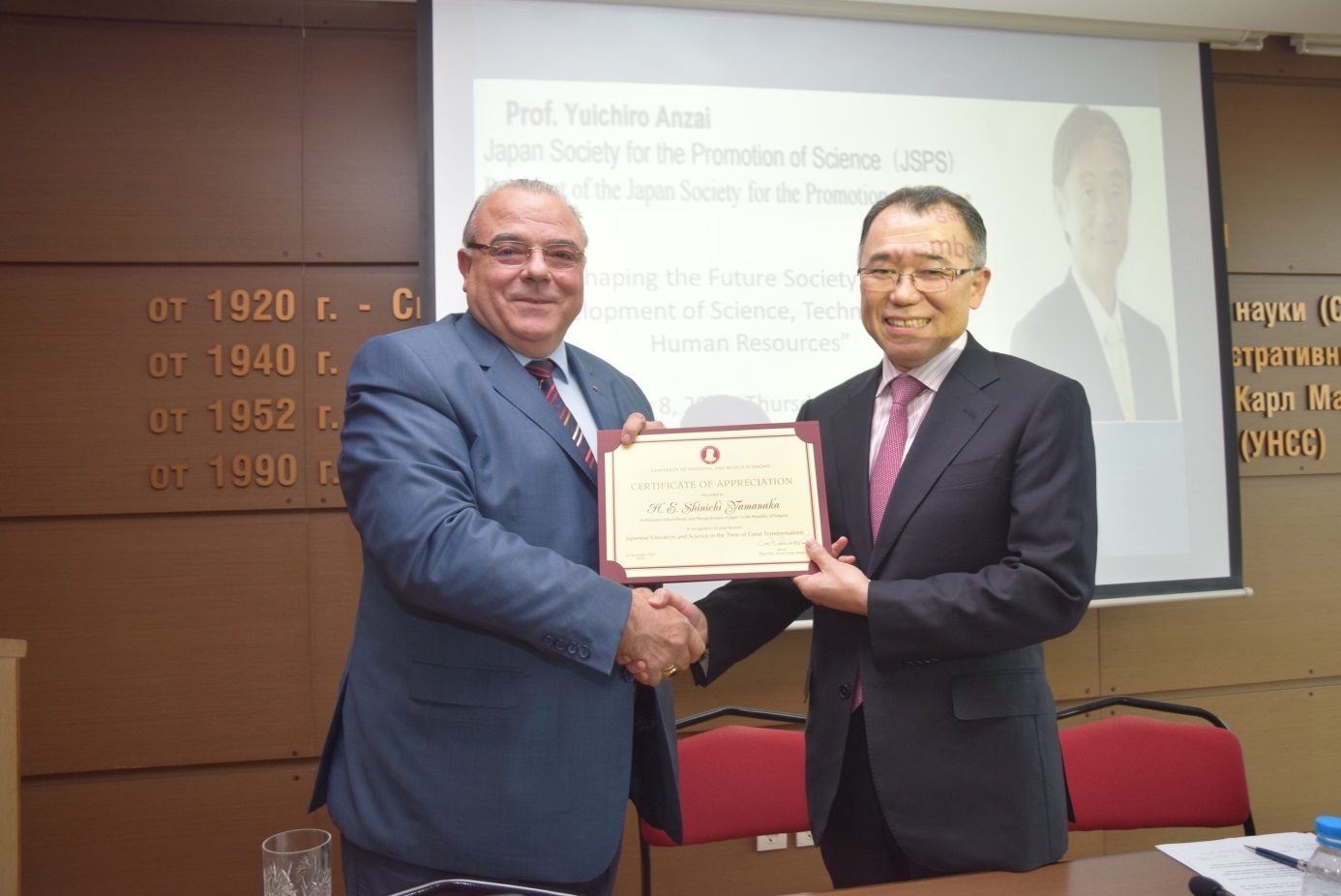 |